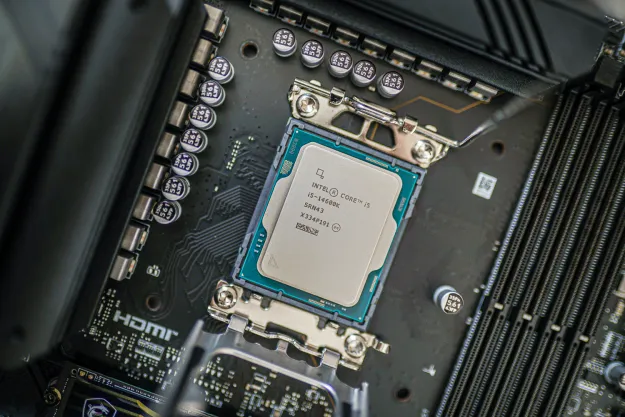Giant chipmaker Intel has announced it forthcoming line of “Westmere” processors, built using a 32nm process with many of the chips incorporating on-die graphic processing units (GPUs) to enhance performance. The processors span both desktop and notebook configurations, and while the company plans the formal rollout at the CES trade show in January, many of the details are available now.

Altogether, Intel plans to launch 17 new processors at CES, along with new chipset bundles and seven new wireless chips. The new CPUs will be sold under Core i3 and Core i5 labels, complementing the existing Core i7 label applied to some Intel quad-core chip offerings. The Core i3 line is aimed at notebooks and budget-friendly desktops, while the Core i5 line will target mid-range desktop systems.
The Core i5 units will feature HyperThreading (which enables each processor core to run separate processes) and Intel’s Turbo Boost technology that lets the processor disable an idle CPU core to save power, or throw extra processing power at intensive tasks like video editing and gaming.
Several of the new chips will support on-chip graphics processors dubbed Intel HD Graphics, fabricated using Intel’s older 45nm process. According to Intel, the new GPU technology is capable of deciding two high-definition video streams at once in hardware, enabling support for dual display configurations as well as improved graphics performance. Intel is touting the on-die GPU as a significant performance benefit to consumers and systems integrators: it’s also heart of increasingly bitter litigation between Intel and graphics developer Nvidia, and now a component of the FTC’s recent antitrust lawsuit against Intel.
The 17 new chips represent one of Intel’s largest CPU rollouts in history: the company normally spreads out its releases, but is rolling out a broad range of chips to better cover the notebook and midrange desktop segments. The company also plans to announce additional quad-core “Westmere” processors at a later date.
The formal announcement will come from Intel CEO Paul Otellini at his CES keynote address on January 7; that same day, computer makers like HP, Acer, and Dell should be announcing desktop and notebook systems built around the new CPUs.
Editors' Recommendations
- Intel’s new Thunderbolt feature ‘fundamentally changes’ how you use two PCs
- 4 CPUs you should buy instead of the Intel Core i9-13900K
- Nice try, Intel, but AMD 3D V-Cache chips still win
- Intel CPU gaming crashes are causing an uproar
- Intel may have a monster new CPU coming soon


